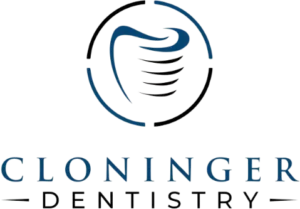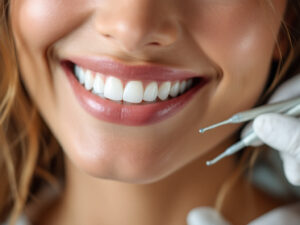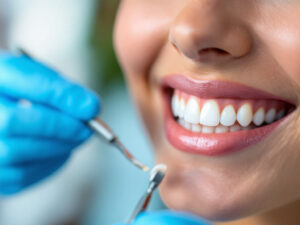Preventive dental services help you maintain a healthy smile, prevent oral disease, and avoid costly restorative procedures down the line. By focusing on regular check-ups, professional cleanings, fluoride applications, and dental sealants, you strengthen your teeth and gums before problems begin. At Cloninger Dentistry, we deliver comprehensive preventive dentistry with comfort, coverage, and continuity of care tailored to your needs.
Understanding preventive dental services
Definition and scope
Preventive dentistry aims to keep your mouth healthy, prevent disease, and support good oral hygiene through routine care and education. This approach typically includes:
- Regular professional cleanings to remove plaque and tartar
- Dental examinations and periodic X-rays for early problem detection
- Fluoride treatments to strengthen enamel
- Sealant placement to protect vulnerable tooth surfaces
- Oral cancer screenings and gum assessments
- Guidance on home care habits, diet, and lifestyle factors
Preventive dentistry differs from restorative treatments, which address damage after it occurs. Restorative procedures such as implants, crowns, fillings, and root canals focus on fixing dental problems, often at a higher cost and with more complex interventions [1].
Benefits of preventive care
Investing in preventive dental services offers multiple advantages:
- Lower overall dental costs by reducing the need for fillings, crowns, or root canals
- Early detection of issues, making treatments simpler and less invasive
- Decreased likelihood of gum disease, bad breath, and tooth loss
- Improved overall health by reducing inflammation linked to systemic conditions, including diabetes and heart disease [2]
- Enhanced confidence in your smile for personal and professional interactions
Long-term oral health impact
Consistent preventive visits contribute to better long-term outcomes. Adults who have routine dental check-ups experience significantly fewer missing teeth compared to those who seek care only when problems arise [3]. Similarly, children who attend scheduled preventive visits tend to require fewer cavities filled and fewer extractions over time. By prioritizing prevention, you protect both your dental health and your overall well-being.
Explore preventive procedures
Different preventive treatments address various aspects of oral health. The table below summarizes key services, their purpose, recommended frequency, and typical age recommendations.
| Procedure | Purpose | Frequency | Typical age |
|---|---|---|---|
| Routine checkup and cleaning | Oral exam, plaque and tartar removal | Every 6 months, or as directed | All ages |
| Oral cancer screening | Early detection of suspicious lesions | Annually or as needed | Adults and high-risk patients |
| Dental sealants | Seal pits and fissures to prevent decay | Once, with evaluations every 3–5 years | Children 6–14; high-risk adults |
| Fluoride treatments | Enamel strengthening and decay prevention | Every 6 months, or per risk | All ages |
Routine checkup and cleaning
During a routine check-up, you receive a comprehensive oral examination. Your dentist assesses tooth structure, gum health, bite alignment, and soft tissues to spot early signs of cavities, inflammation, or other concerns. Periodic X-rays may reveal hidden issues such as impacted teeth or early bone loss.
Following the exam, a professional cleaning removes plaque and hardened tartar that home care alone cannot eliminate. Techniques like scaling, polishing, and flossing restore smooth tooth surfaces and help prevent future buildup. Depending on your risk factors—such as history of gum disease or sensitivity—you may benefit from more frequent cleanings or targeted periodontal maintenance. To learn more, schedule a routine dental checkup or book a professional teeth cleaning with Cloninger Dentistry.
Preventive services such as check-ups and cleanings are often covered at 100 percent by dental insurance plans, with minimal or no deductibles or co-pays [4].
Oral cancer screening
An oral cancer screening is a critical preventive step, especially if you have risk factors like tobacco use, heavy alcohol consumption, or a family history of cancer. During the screening, your dentist examines the soft tissues of your mouth—including the tongue, cheeks, throat, and palate—for lesions, color changes, or abnormalities. Some practices use adjunctive diagnostic tools, such as fluorescence visualization or toluidine blue dye, to enhance early detection. Discuss your individual risk and screening options with an oral cancer screening dentist.
Dental sealants service
Dental sealants are thin, protective coatings applied to the chewing surfaces of molars and premolars, where grooves and pits trap food and bacteria. The sealant process involves:
- Cleaning and drying the tooth
- Applying a conditioning solution
- Placing the sealant material
- Curing it with a special light
Sealants can last several years with proper care and are especially effective for children and teens whose newly erupted teeth are most vulnerable to decay. Many insurance plans cover sealants for qualifying patients, making them an economical defense against cavities. Learn more about this preventive option through our dental sealants service.
Fluoride treatment dentistry
Fluoride treatments strengthen enamel by promoting remineralization and inhibiting bacterial acid production. Professional applications may include varnishes, foams, or gels tailored to your specific needs. For children whose water supply lacks fluoride, supplemental fluoride can significantly reduce the incidence of dental caries [5]. At Cloninger Dentistry, we customize each fluoride treatment dentistry appointment to maximize protection and comfort. You may also discuss at-home fluoride rinse protocols to reinforce professional treatments.
Plan your dental visits
Frequency recommendations
The American Dental Association recommends that most individuals visit the dentist twice a year for exams, cleanings, and X-rays to detect issues early and maintain oral health [6]. However, your optimal schedule depends on personal risk factors:
| Risk level | Recommended visit frequency |
|---|---|
| Low risk | Once a year |
| Moderate risk | Every 6 months |
| High risk | Every 3 to 4 months |
Factors influencing your visit schedule include gum disease, history of cavities, medical conditions such as diabetes, and lifestyle behaviors like smoking.
Creating a preventive dental care plan
A personalized preventive dental care plan outlines the treatments, visit intervals, and home care strategies that suit your unique needs. At Cloninger Dentistry, we collaborate with you to develop a preventive dental care plan that may include:
- Customized cleaning and exam intervals
- Sealant and fluoride recommendations
- Oral hygiene product suggestions
- Diet and lifestyle guidance
- Monitoring for specific conditions, such as enamel erosion or gum inflammation
- Automated appointment reminders via email or text
Our secure online portal lets you review your plan, manage appointments, and access educational resources whenever you need them.
New patient dental exam
If you are new to our practice, your first visit includes a comprehensive new patient dental exam. We will:
- Review your medical and dental history
- Conduct a full oral and periodontal examination
- Capture digital X-rays and intraoral photographs
- Discuss your preventive goals and any concerns
This baseline assessment allows us to track changes over time and refine your preventive plan for lasting oral health.
Manage coverage and costs
Insurance for preventive services
Preventive services are designed to keep you out of the dental chair for more complex treatments. Consequently, most dental insurance plans cover preventive care at 100 percent, helping you maintain routine visits without out-of-pocket expenses. Coverage typically includes:
- Exams and cleanings
- Bitewing and full-mouth X-rays
- Fluoride treatments and sealants
Keep in mind that benefits can vary between in-network and out-of-network providers. Always verify your specific coverage, frequency limits, and any required co-pays or deductibles before scheduling.
Finding an insurance accepted dentist
An insurance accepted dentist relationship streamlines billing and often reduces your costs. At Cloninger Dentistry, we work with most major dental insurance providers. Our front-desk team confirms your benefits in advance, so you can focus on your oral health rather than paperwork.
Selecting a gentle family dentist
Comfort and trust are key when it comes to dental care. Our gentle family dentist approach emphasizes:
- A relaxed, supportive atmosphere
- Clear communication about each procedure
- Comfort aids like warming pillows and noise-cancelling headphones
- Continuity of care with consistent provider relationships
By choosing a practice dedicated to your comfort and confidence, you are more likely to maintain regular preventive visits.
Support home oral hygiene
Daily brushing and flossing
Effective preventive care extends beyond the dental office. Your home routine should include:
- Brushing twice daily with fluoride toothpaste for two minutes each time
- Flossing once a day to remove plaque between teeth
- Using an antimicrobial or fluoride mouthwash if recommended
- Cleaning your tongue with a scraper or toothbrush to reduce bacteria
Proper technique matters: hold your brush at a 45-degree angle to the gumline, use gentle circular motions, and avoid excessive force that can erode enamel.
Diet and lifestyle factors
What you eat and drink, as well as lifestyle habits, directly influence your oral health. Consider these tips:
- Limit sugary snacks and beverages—bacteria produce acid within 20 minutes of sugar exposure, leading to enamel demineralization
- Drink plenty of water to support saliva production and natural cleansing
- Choose calcium-rich foods like dairy, leafy greens, and nuts for strong teeth
- Avoid tobacco products and moderate alcohol consumption; people who drink alcohol have a three times higher rate of permanent tooth loss than the national average, and tobacco usage is linked to common oral diseases [3]
By combining healthy habits with professional care, you establish a strong defense against dental problems.
Maintenance tools and services
Professional support complements your home care. Cloninger Dentistry’s dental hygiene maintenance services include:
- Targeted cleanings for areas prone to buildup
- Monitoring of gum pocket depths and early intervention
- Instruction on advanced home care tools like interdental brushes and electric toothbrushes
- Periodic reviews of your preventive care plan
Regular maintenance visits help you refine your routine and address emerging concerns before they escalate.
Include children’s preventive care
Early dental habits
Instilling good oral hygiene early sets the stage for a lifetime of healthy smiles. Begin cleaning your child’s gums with a soft cloth before teeth emerge. Preventive dental care can start as soon as a tooth appears, helping you identify problems at an early stage [7]. Despite these efforts, approximately 23 percent of children aged 2 to 5 years have dental caries in their primary teeth, with higher rates among certain populations [5]. Once teeth erupt, introduce a soft-bristled toothbrush and a smear of fluoride toothpaste twice daily. Make brushing and flossing part of a fun routine to encourage cooperation.
Pediatric preventive services
Children’s mouths have unique needs. At Cloninger Dentistry, we offer specialized children’s dentistry preventive care that includes:
- Fluoride varnish applications to strengthen developing enamel
- Sealant placement on newly erupted permanent molars
- Nutritional counseling to reduce cavity risk
- Habit assessments for thumb-sucking or prolonged pacifier use
By tailoring care to growing mouths, we help children develop optimal oral health from the start.
Checkup and x-ray combo
A checkup and x-ray combo streamlines preventive care by combining an oral exam, professional cleaning, and necessary X-rays into one visit. This efficient approach saves time and ensures comprehensive monitoring of your child’s dental development.
Schedule your preventive visit
Ready to protect your smile? At Cloninger Dentistry, we make preventive dental care easy, comfortable, and affordable. Whether you need a routine check-up, pediatric exam, or a personalized preventive plan, our team is here to support your family’s oral health journey. Book your next appointment online, call our office, or use our secure patient portal to schedule and manage visits. Experience preventive dentistry with comfort, coverage, and continuity of care.










